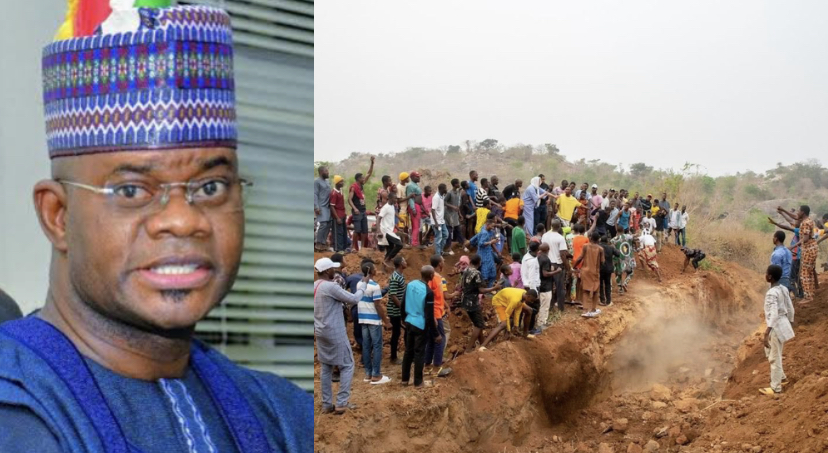Yahaya Bello's Alleged Road Destruction: A Concern for Democracy in Kogi State
- Posted on February 27, 2023
- Politics
- By STEPHEN ADEBAYO

As the 2023 presidential election in Nigeria draws near, reports have emerged that Yahaya Bello, the incumbent governor of Kogi State, has allegedly destroyed five roads leading to the hometown of Natasha Akpoti, a gubernatorial candidate and the founder of the Kogi-based social enterprise, Builders Hub Impact Investment Program (BHIIP). This act is believed to have been committed to preventing Independent National Electoral Commission (INEC) officials from reaching the town and conducting the election process.
The destruction of the roads has left the people of the town completely cut off from the rest of Kogi, causing widespread concern about the state of democracy and the rule of law in the state. The actions of the governor are seen as a threat to the integrity of the election and have raised questions about the transparency and fairness of the electoral process.
Yahaya Bello allegedly destroys five roads leading to Natasha Akpoti’s hometown to prevent @inecnigeria officials from getting there. They’re completely cut off from the rest of Kogi. This is madness!!!? #Nigeriadecide2023 #kogi #yahayabello #natashaakpoti pic.twitter.com/vSG1uQu2zp
The allegations against Governor Bello are serious and require urgent attention from the relevant authorities. If true, this act is a clear violation of the democratic principles that underpin the electoral process and poses a serious threat to the stability and progress of Kogi State.
It is important to note that the destruction of the roads not only affects the election process but also has a significant impact on the daily lives of the people in the town. It has made it difficult for them to access basic services such as healthcare, education, and markets, and has further marginalized them from the rest of the state.
The situation in Kogi State highlights the need for greater transparency and accountability in the electoral process. It is important that all parties involved, including the INEC, security agencies, and political candidates, adhere to the rules and regulations governing the election and ensure that the process is free, fair, and credible.
The destruction of the roads is a clear indication of the desperation of some politicians to win at all costs, even if it means undermining the democratic process. This is a dangerous trend that needs to be nipped in the bud to prevent it from becoming a norm in Nigeria's electoral system.
It is also important to note that the destruction of the roads is not an isolated incident in Nigeria's political history. Similar acts of violence, intimidation and election manipulation have been reported in previous elections, and there is a need for urgent action to address this trend.
In conclusion, the alleged destruction of five roads leading to the hometown of Natasha Akpoti, a gubernatorial candidate in Kogi State, by Governor Yahaya Bello, is a concerning development for democracy in the state. This act threatens the integrity of the electoral process and highlights the need for greater transparency and accountability in the political system. It is important for all stakeholders to respect the rules and regulations governing the electoral process and to work towards ensuring that it is free, fair, and credible. Only then can Nigeria's democracy truly thrive, and its citizens can enjoy the benefits of good governance and leadership.


Be the first to comment!
You must login to comment